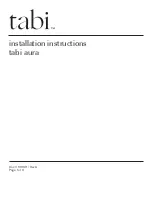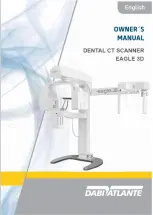
38
1/21
MODEL 200 UC
MAINTENANCE
UNPLUGGING THE CHIPPER
If your chipper is plugging, it is usually caused by allowing the engine to drop below required R.P.M.’s.
This can be resolved by simply shutting the feedwheels off when the engine begins to lug down. Operating
the engine at speeds lower than full R.P.M.’s causes your chipper to plug.
Always run the chipper at full
engine speed.
If your chipper is equipped with the optional autofeed feature, make sure it is set correctly. The
setting for the low R.P.M. stop must be high enough not to allow the chipper discharge to plug. Dull chipper
knives also contribute to chipper plugging. Dull knives can create slivers and chunks, causing the engine to
lug excessively. Both of the aforementioned conditions cause a plugging situation.
STEPS TO FOLLOW WHEN UNPLUGGING YOUR CHIPPER
1. Before attempting any type of maintenance
disengage clutch, turn off engine, wait for the disc
to come to a complete stop, install the disc lock pin,
disconnect battery, and make sure the ignition key
is in your possession.
2. There should, also, be at least two people on site
during maintenance and service procedures in case
an accident should occur.
3. Make sure the chipper disc is
NOT
turning and
then open the hinged portion of the chipper hood.
4. Using gloved hands and some type of raking tool,
dig the chips out of the chipper housing.
5. If the discharge chute is plugged, use a raking
tool to pull the majority of chips out of the open outlet
end of the chute. If the discharge chute needs to
removed, use some sort of mechanical device like
an overhead hoist, loader, lift truck, etc. that is rated
to lift the discharge. Follow all OSHA instructions
for lifting.
6. Never allow a person to turn the chipper disc
when someone else is working inside the chipper
housing. More than likely, the chipper disc will turn
hard then loosen causing it to turn faster. If another
person is anywhere near the chipper disc, they may
be injured.
If the chipper is properly maintained and operated
correctly, the chipper should not plug. In the unlikely
event that the chipper becomes plugged, do not
attempt to clean out the discharge or chipper housing
in the fi eld. Take the machine to a local dealer or
professional shop. If the machine is a rental, take it
back to the rental company.
If the discharge or hood need to be removed,
always use some sort of mechanical device like an
overhead hoist, loader, lift truck, etc. that is rated for
lifting that component. Follow all OSHA instructions
for lifting.
The knives are very sharp and can cause injury
if you come in contact with the knives during the
unplugging process.
Pinch points are created between the disc and
the housing for the disc. Use a pry bar or wood bar
to turn the disc during the unplugging process. Do
not use your hands to try to break free and turn a
jammed disc. The disc could break free suddenly and
your hand could become injured in the pinch point.
7. Never turn the chipper disc by hand. Always use
a pry bar or wood bar. This will prevent the person
turning the disc from being injured should the disc
break loose.
8. Reinstall the discharge chute, mount securely
and point it in a safe direction away from anything.
9. Never leave the chipper hood open and try to
start the engine in order to engage the chipper disc to
blow chips out of the housing, this is very hard on the
PTO of the chipper and may burn clutch plates. The
fl ying debris is very dangerous. An exposed chipper
disc turning very fast creates an unsafe condition.
Do not start the chipper with the hood open because
it is very dangerous.
10. Once the disc turns freely, close the chipper
hood, insert the hood pin, install the padlock in the
hood pin, reinstall the chipper hood engine disable
plug, pick up all tools, make sure the chipper is free
of all debris, start engine, properly engage clutch
and throttle to full speed. Insert a small branch into
the feedwheels. If the chips discharge properly, the
chipper is clear and normal operation may resume.
DANGER
















































